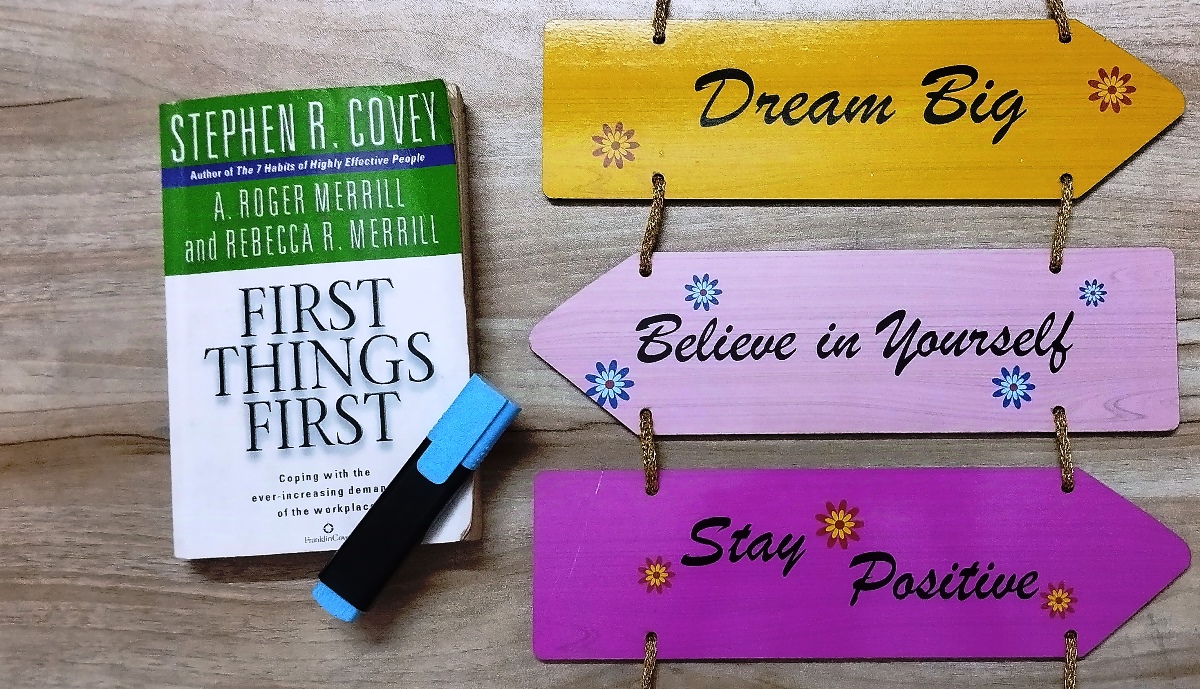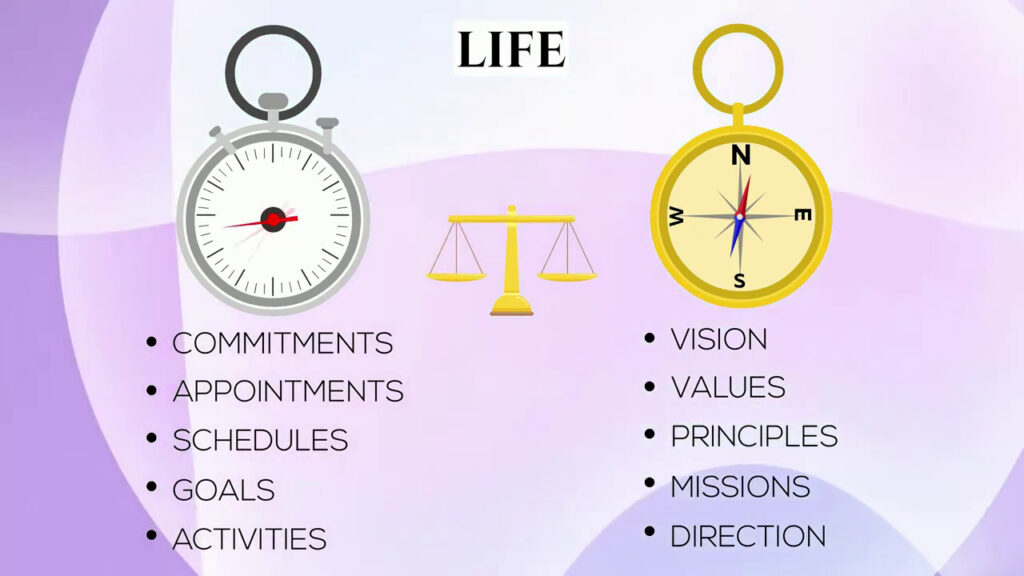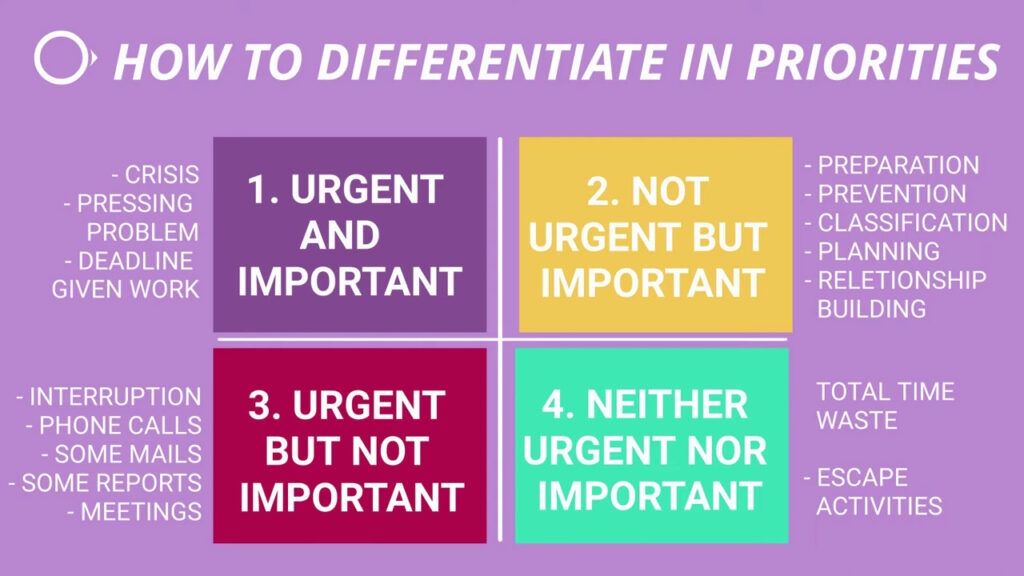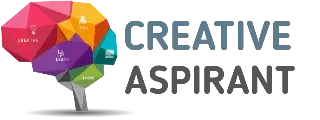Why is it that sometimes we don’t do our first thing first?
We have many tricks, methods, tools, and info to control our time; we’ve learned that if we work harder, learn new things, and do better and faster, we can do anything.
But why do people get frustrated and live in guilt instead of all that?
Mr. Covey disagreed with traditional time management. He said it is pointless to bask our happiness on our ability to control everything. We can’t control the consequences of choice. Universal laws and principles do.
In this book, he represents a dramatically different approach to time management. It is a principle-centered approach.
Stephen R. Covey’s The 7 Habits of Effective People helped people manage their work and home lives in real-time management.
This approach provides you with a compass, as it is more significant than the speed of your progress to determine your destination.

- Part# 1 The Clock And The Compass
- First Generation
- Second Generation
- Third Generation
- The Urgency Addiction
- To Live, To love, To learn, To leave a legacy
- Part# 2 The Main Thing Is To Keep The Main Thing The Main Thing
- The Passion For The Vision
- Balance of Role
- The Power Of Goals
- The Perspective Of The Week
- Weekly Renewal
- Daily Renewal
- Integrity In The Moments Of Choice
- Learning from living
- Part # 3 The Synergy Of Interdependence
- The Interdependent Reality
- First Things First Together
- Empowerment From The Inside Out
- Part #4 The Power And Peace Of Principle-Centered Living
- From Time Management To Personal Leadership
- The Peace Of The Results
Part# 1 The Clock And The Compass
In section one of “The Clock and the Compass,” we’ll examine the gap many people feel between how they spend their time and what is deeply important to them.
Putting first things first is a big part of life. We have many responsibilities, and we all feel torn between what we want to do and what we need to do.
Our struggle to put things first can be characterized by the contrast between two powerful tools that direct us : The clock and the compass.
The clock represents our commitments, appointments, schedules, goals, and activities, as well as what we do with and how we manage our time.
The compass represents our vision, values, principles, mission, conscience, and direction- What we feel is essential and how we lead our lives.
The struggle comes when we sense a gap between the clock and the compass.
When what we do doesn’t contribute to what is most important in our lives, the pain of a gap is intense for some of us. We feel trapped and controlled by other people or situations.
Some people feel vague discomfort, and some feels empty. We have defined happiness solely in terms of professional and financial achievement.
Other people feel disoriented or confused. They do not have a “first thing”; they move from one activity to another on automatic.
Covey introduces the three generations of Time management. Many of us turn to the field of “time management” in our efforts to close the gap between the clock and the compass in our lives.

First Generation
Strengths:
- Ability to adapt when something more important arises-go with the flow flexibility.
- Ability to be more responsive to people.
- Tracks “to-do’s”
Weakness:
- There is no real Structure.
- Commitment to others is ignored or forgotten, and relationships suffer.
- “First Things” are the things right in front of you.
Second Generation
Strengths:
- Tracks commitments and appointments.
- It’s much more accomplished.
- More effective meetings and presentations through preparation.
Weakness:
- This leads to putting schedules over people.
- Much more what you want-not necessarily what you need or what is fulfilling.
- “First Things” are those things on schedule.
Third Generation
Strengths:
- Connect with the values
- Translate values into goals and actions.
- Increase efficiency.
Weakness:
- The Power of vision is untapped.
- Daily planning rarely gets past prioritizing the urgent, the pressing, and crisis management.
- “First Things” set by urgency and value.
Time management, especially the third generation, sounds good.
It promises achievement and a sense of hope. We require a revolution more than an evolution.
The Urgency Addiction
“Anything less than a conscious commitment to the important is an unconscious commitment to the unimportant.”
The two primary factors that drive our choices concerning how we use our time are urgency and importance.
The fourth generation is based on the importance paradigm.
It’s become a status symbol in our society; if we’re busy, we’re important. If we’re not working, we feel ashamed to admit it.
Busyness is where we get our security. It’s validating, popular, and pleasing. It’s also a good excuse for not dealing with the first thing in our lives.
We should not be urgency addicts. There are two examples of:
“I’d love to spend quality time with you, but I have to work. There’s this deadline; it’s urgent, of course, you understand.“
“ I just don’t have time for exercise. I know it’s essential, but there are so many pressing things right now. Maybe when things slow down a little, I’ll have time.”
An urgent addiction is a destructive behaviour that temporarily fills the void created by unmet needs.
The time management matrix can be used to focus on the issue of urgency and importance effectively. Covey identifies activities into four quadrants.
Image of Four Quadrant

To Live, To love, To learn, To leave a legacy
Certain things are fundamental to human fulfilment. If these basic needs are not met, we feel empty and incomplete.
The essence of these needs is captured in the phrase “to live, to love, to learn, to live a legacy.”
- Physical Needs: Such things as food, clothing, shelter, economic well-being, and health.
- Social Needs.: To love, relate to others, belong, and be loved.
- Mental Need: To develop and grow.
- Spiritual need: A sense of meaning, purpose, personal unity, and contribution.
Unmet needs reduce the quality of life. We have to balance and create synergy among the four needs.
If you are in debt or poor health, if you don’t have enough food, clothing, or shelter, if you feel lonely and alone, and if you feel mentally stuck, your quality of life will suffer.
READ It To Find True Happiness And Purpose of Life: Ikigai Book Summary (With Pdf)
Part# 2 The Main Thing Is To Keep The Main Thing The Main Thing
This section will discuss the quadrant II organization process, a thirty-minute weekly process that helps you create a quality of life based on needs, principles, and endowments.
A business consultant named Roger moved to his new home a while back. He wanted a low-maintenance garden because he was very busy and travelled a lot.
He told me about the necessity of automatic sprinklers and other labour-saving devices. He was always looking for ways to reduce his spending on maintenance things.
Finally, she stopped and said, “Fred, I can see what you are saying. But there is one thing you need to deal with before we go any further.
“ If there’s no gardener, there’s no garden!”
Most of us think it would be great if we could just automate our gardens—or our lives—and somehow improve our quality of life.
But life doesn’t work that way. We can’t just throw some seeds, get going, and then expect to find a gorgeous, well-tended garden when we return.
Our lives will bring forth anyway.
Things will grow. However, the difference between our active involvement as gardeners and neglect is between a beautiful garden and a neglected patch.
Let know the gardening process. It involves identifying important plants and focusing our efforts to help them grow. It also involves planting, cultivating, watering, and weeding.
It applies the important paradigm to nurture quality of life; it is a high-leverage activity that you can do for about thirty minutes each week.
As you begin to organize for the coming week, it is important to connect what is most important to you.
- Step One: Connect with your vision and mission
- Step Two: Identify your Roles
- Step Three: Select Quadrant II Goals in each Role
- Step Four: Create a decision-making framework for the week
- Step Five: exercise integrity in the moment
- Step Six: Evaluate
The Passion For The Vision
In a sense, we have three lives. We have our public life, where we interact with other people at work, in the community, and at social events.
We have a private life in which we are away from the public.
But our most significant life is pure, deep inner life. This is where we connect with our unique human endowment of self-awareness, conscience, independence-will, and creative imagination.
Without these endowments, it’s impossible to create the kind of vision that will improve the quality of life.
Covey suggests setting up Quadrant II time each week to cultivate a rich inner life.
Help your children or others whose lives you touch to create their mission statement. Nurture vision in others.
Balance of Role
- What is a balance?
Balance is a “true north principle.” We see manifestations all around us—the balance of nature, the balance of trade, the balance of power, and a well-balanced meal.
Our job duties are entirely distinct from our home duties, and we don’t think they have much in common with other responsibilities, such as personal community involvement.
This compartmentalization translates into our character.
“One man cannot do right in one department of life whilst he is occupied in doing wrong in any other department. Life is one indivisible whole.”
Mahatma Gandhi
The Power Of Goals
Goals won’t be able to deliver high-quality outcomes without principles.
You can want to do the right thing and even want to do it for the right reasons. But if you don’t apply the correct principle, you can still hit a wall.
A principal-based goal is all three: the right thing, the right reason, and the right way.
Principal-based goal setting involves the full, synergistic use of all four human endowments:
- Through conscience, we connect with the passion of vision and mission and the power of principles.
- Through creative imagination, we see possibilities and synergistic, innovative ways to achieve them.
- Through self-awareness, we set goals with realistic stretches and stay open to conscious-driven change.
- Through an independent will, we make a purposeful choice and carry it out: we have the integrity to walk and talk.
Think about how you are using each of your endowments as you set and achieve goals for the week.
Learn the 80/20 Principle and How to Use It to Become Happy and Blessed.
The Perspective Of The Week
The week’s perspective prompts us to plan for renewal—a time for reaction and reflection—weekly and daily.
Weekly Renewal
Most cultures support the notion of weekly renewal, which is most often seen in weekend activities. These could include sports or having fun with family and friends.
Quadrant II organizing helps us schedule weekly renewals as part of a healthy lifestyle. Renewal is not a mindless, purposeless escape activity. It includes Quadrant II activities such as:
- Building, repairing, or renewing relationships with family and friends.
- We commit to deep values through rest and recreation.
- Develop your talents through special interests and hobbies.
- Helping out in the community.
Daily Renewal
The week’s perspective provides a contest for balance in daily renewal. For instance, if you devote an hour per day to rejuvenation, you might take “balance” to mean engaging in a fifteen-minute workout.
Listen to your teenage daughter for fifteen minutes. Study for fifteen minutes. Meditate for fifteen minutes.
A health expert says that to achieve the “training effect,” you must exercise vigorously for at least thirty minutes three times a week and rest your body between workouts.
Integrity In The Moments Of Choice
A moment of choice is a moment of truth. It tests our abilities and character. Consider some of the factors that influence us when we make a choice.
- Urgency (things that are pressing and proximate)
- The social mirror (things that are pleasing and popular)
- Our own expectations
- The expectation of others
- Our deep values (What we feel is important in the long run)
- Our operational values (what we want in the short run)
- our scripting
- Our self-awareness
- Our conscience
- Our fundamental needs
- Our wants
Covey suggests that we stop and analyze the factors that are affecting us in at least one decision moment each day, such as urgency, the priorities of others, fatigue, expectation, and scripting.
Write them down, and then write something about how important they are. Notice if you feel your response to these factors changing as you take time to become aware to think about them.
Learning from living
Evaluation is both the final and initial step in a living and learning cycle that creates an upward spiral of growth.
It takes us back to the beginning of the process again, but with a greater capacity.
As we learn from living, we can better review our mission and roles, set goals, create a framework for the new week, and act with more integrity at the moment.
Our weeks become repeating cycles of learning and growth as we organize, act, and evaluate again.
Know How Robert Greene’s 48 Laws to Help You Be Smart, Make Good Plans, and Defend Yourself.
Part # 3 The Synergy Of Interdependence
As we start discussing interdependent reality, you should stop and consider how your relationships with other people affect your time and the quality of your life.
- How much time is wasted in your family and organizations in miscommunication, misunderstanding, and politicking?
Most people spend most of their waking time communicating or interacting with other people or dealing with the consequences of poor communication or interaction.
Effective interdependence is core to the issue of time management.
The Interdependent Reality
“Interdependence is and ought to be as much the ideal of man as self-sufficiency. Man is a social being.”
Gandhi
By nature, quality of life and our roles are interdependent; we are husbands, wives, parents, friends, bosses, employees, workers, community members, and citizens.
Quality in almost every job involves a relationship with at least one person. Our accomplishments are interdependent.
- To love is the definition of interdependent. “Love isn’t love until you give it away.”
- To learn is to grow, to feel ourselves expanding. Learning occurs when we read books written by others, attend seminars given by others, and take a class taught by others.
- Leaving a legacy is also interdependent. It means contributing to society and, in meaningful ways, to the lives of others.
First Things First Together
“Three-fourths of the miseries and misunderstanding of the world will disappear if we step into the shoes of our adversaries and understand their standpoint.”
Gandhi
When we truly understand the other perspective, we often find our point of view changed through increased understanding.
Real listening shows respect and trust. As we listen, we gain understanding and create an environment for understanding.
First thing first is a function of empowerment.
Empowerment From The Inside Out
It would be great if we worked in an empowered and high-quality culture. But It’s done.
In reality, we worked in a comparative environment, inundated by rules & regulations. The majority of individuals devote their time to Quadrant III.
Like politicking, backbiting, blaming, assuming, and confessing each other’s sin.
In this chapter, we would like to look at three specific things we can do within any Circle of Influence to work in quadrant II to empower ourselves and help transform our environment.
- Cultivate the conditions of empowerment.
- Feast on the Lunch of Champions
- Become a leader/servant.
To create empowering change, let’s consider these conditions.
- Trustworthiness
- Trust
- Win -Win Agreement
- Self-directing individuals /Terms
- Aligned Structure and system
- Accountability
Learn to connect with people and become a master influencer. Dive into our summary of “How to Win Friends and Influence People.
Part #4 The Power And Peace Of Principle-Centered Living
Quadrant II paradigm plays out in common situations, offices, families, and teams. We’ll show how the fourth generation literally changes the things you do and why you do them.
We’ll figure out what’s essential in life and what’s stopping us from living it fully.
From Time Management To Personal Leadership
In the beginning, we discussed that the fourth generation is different in kind. It’s more than time management; it’s personal leadership.
This is not just a new way of doing things in an old way; it’s a new way of doing things in a new way.
How is the fourth-generation approach different?
Rather than activities and appointments, you see your day in terms of people and relationships.
You see processes in progress as new possibilities for contributing to the organization’s mission. It’s not a matter of when to do things but whether or not to do them.
It asks questions of why, how, and when. Furthermore, it shows a compass and a clock.
You want to pause and connect with your conscience when making your decision.
- Asked with Intent
- Listen without excuse
- Act with courage
Explore the secret to living in the present moment and unlock true happiness. Read our summary of The Power of Now by Eckhart Tolle.
The Peace Of The Results
The peace we’re talking about is the result of a deep inner life. It’s joyful living—obviously more than the absence of war.
It’s found in life, not to avoid it.
The independent achievement approach seems to say that peace and happiness come from things like these.
- Money in the Bank
- Control
- Recognition and fame
- A new house, a fancy car, or other material possessions.
- Superior social status
Take a moment and think about your life. What does peace mean to you? Where does it come from?
Peace is essentially a function of putting first thing first.
Foundational to “first things” are the four needs and capacities.
To Live, To Love, to leave a legacy. Putting the first thing first is a function of using our four endowments.
Self-awareness, conscience, independence, and creative imagination—to fulfill our needs and capacities in a principle-centered way.
Thank Hope you Enjoy
